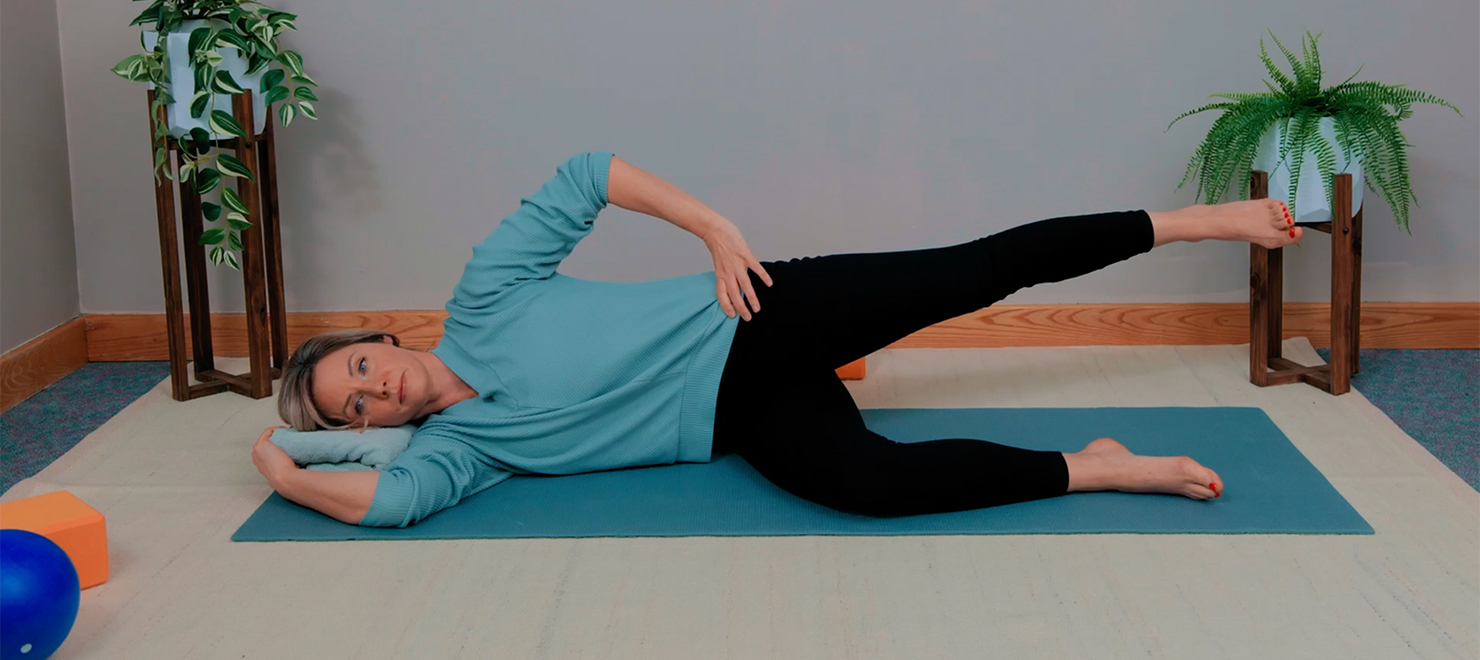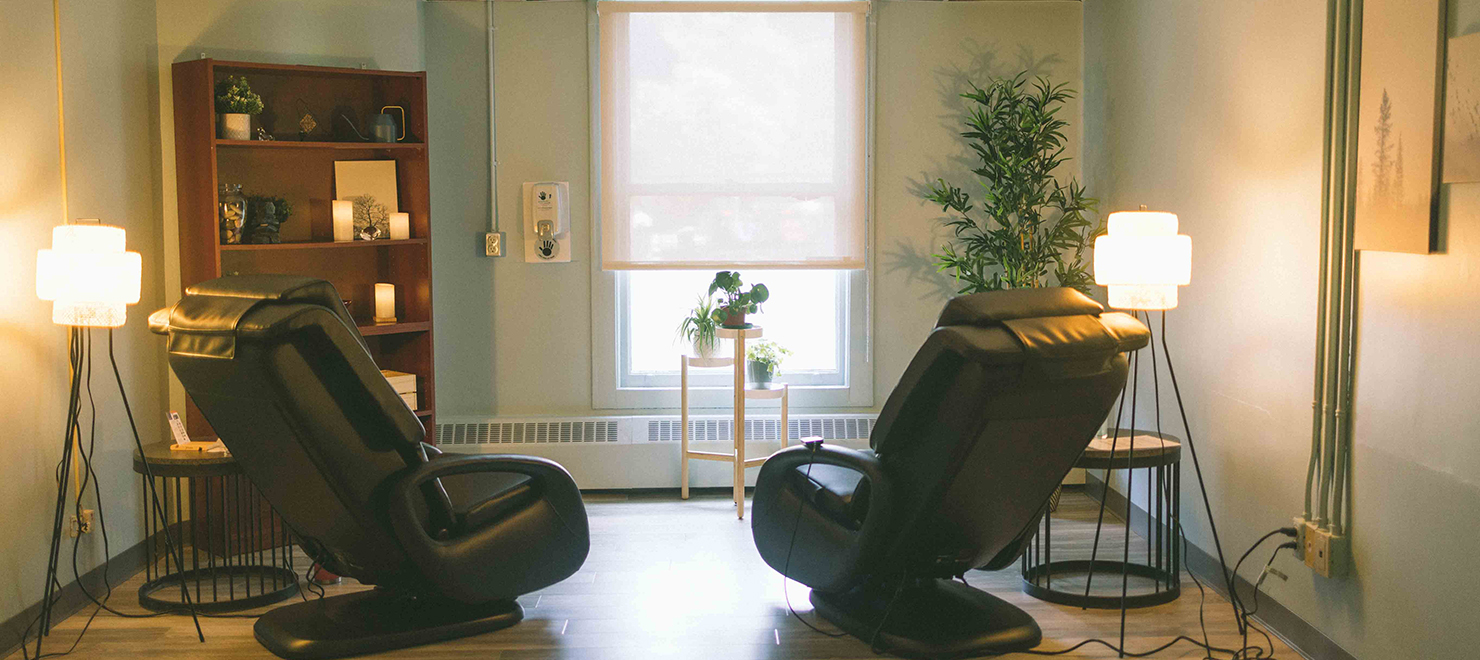
The internet is full of sleep hygiene tips like “put your phone away,” “keep your bedroom dark” and “don’t exercise too close to bedtime.” Although these tips are useful, few people focus on how changing your thoughts can improve your sleep.
“Unhelpful thinking is connected to upsetting emotions and unhelpful behaviours that interfere with good sleep, so healthy thinking is important to healthy sleeping,” said Dr. Cheryl Harris, a clinical, health and rehabilitation psychologist at The Ottawa Hospital.
Although upsetting thoughts can surface at any time, they can be particularly unhelpful as you try to fall asleep.
“Lying quietly in bed is a time when worries—upsetting, repetitive thoughts—can emerge,” said Dr. Ivan Valdivia, a psychologist at The Ottawa Hospital. “These thoughts can increase heart rate, blood pressure and muscle tension, making sleep less likely.”
Changing the way you think isn’t easy, especially if you’ve been thinking the same way for years.
Drs. Valdivia and Harris share their tips for managing your thoughts to help you get a better night’s sleep.
- Become aware of your thoughts. The first step to changing unhelpful thoughts is to become aware of them and the anxiety they generate about lack of sleep. For example, thoughts like “I only have two hours left to get some sleep,” or “Why am I laying here awake again?” only make sleeping more difficult.
- Beware of thinking traps. Try to catch yourself if you jump to conclusions about the future (“I will not sleep tonight,”) use all-or-nothing thinking (“I must get eight hours of sleep or I’m a mess”), or overgeneralize (“every time I don’t function well, it’s because of my sleep.”)
- Challenge unhelpful thoughts and offer alternatives. Try to replace the unhelpful thoughts above with more accurate ones like, “I will sleep when my body is ready,” or “I might be tired tomorrow but it probably won’t be the disaster I’m imagining.”
- Try to take the pressure off. Remember that the harder you try to sleep, the harder it will be to fall asleep. “Good sleepers” are people who trust that sleep will come spontaneously. When this trust is weakened, sleep problems arise.
- Set a dedicated “worry time.” If worrying is getting in the way of sleep, try to dedicate about 30 minutes of “worry time” each day at least two hours before bed. Write downworries and problem-solve aspects within your control. This can help you actively deal with the concerns that may be keeping you up at night. Just thinking about your worries in your head during “worry time” will not have the same positive effect as writing them down and sorting them out.
- Exercise caution around sleep tracking devices. Although these devices can give you useful information and develop positive behaviours around sleep, there is evidence that they can also foster an over-focus on sleep. You may become hyper aware of when sleep veers off the potentially narrowly-defined path of what your sleep “should be.” This can create anxiety and generate new self-fulfilling sleep problems that, in some cases, the apps were meant to help avoid or fix in the first place.
A night or two of poor sleep is nothing to worry about. But if you regularly struggle to fall asleep or stay asleep, you’re not alone.
Sleep difficulties are common and costly
Up to one in four Canadians have some form of sleep difficulty, but many of us suffer in silence. Lack of sleep may cost the Canadian economy $21 billion annually and 80,000 working days per year.[1]
Good sleep can support good health
Sleep is a vital process that, along with diet and exercise, plays a big part in maintaining your mental and physical health. In fact, sleep helps people:
- Maintain and restore memory and attention
- Cope with stressors
- Manage emotional experiences
- Regulate metabolism
- Fight infections such as COVID-19
That’s why it’s so important to:
- Value sleep: see it as important
- Prioritize sleep: act on its importance[2]
And although sleep is important for everyone, everyone’s sleepscape will be different. For example, how much sleep you need, and whether you are a morning or a night person, will be unique to you. In other words, when it comes to sleep, one size does not fit all.
Want to learn more about sleep? Visit the Sleep: True or False page from SleepOnItCanada.
[2] https://onlinelibrary.wiley.com/doi/epdf/10.1111/jsr.13502

Support patient care and research at
The Ottawa Hospital
You might also like…
Understanding rabies: Risks, vaccination and what to do after a bite
Although rare in Canada, rabies is almost always fatal once symptoms appear. Infectious diseases expert Dr. Michaeline McGuinty shares how rabies is spread, when to get vaccinated and what to do after a bite.
“My story doesn’t have to be your story”: New screening test better at preventing cervical cancer
“I went from being a 32-year-old new mom to a cancer patient with an incurable diagnosis.” Alicia’s journey underscores the critical role of HPV testing in preventing cervical cancer. Discover how the new HPV test can save lives and find out how to book your cervical screening appointment with our “Superscreener.”
Sign language interpretation services at The Ottawa Hospital: 5 FAQs
Do you require a sign language interpreter when you come to The Ottawa Hospital? For patients who are Deaf or hard of hearing, we provide both American Sign Language (ASL) and Langue des Signes Québécoise (LSQ) interpretation services at no cost. Before your next appointment with us, find out everything you need to know.
A guide to mindful movement for pain management
Are you seeking relief from pain, discomfort or stress? In these four videos, Physiotherapist Cristin Kargus guides you through gentle, mindful movements to help you reconnect with your body.
Watch: What you need to know about coronary artery disease
Coronary artery disease is the most common form of heart disease and one of the leading causes of death worldwide. In this video, Cardiologist Dr. Nadine Gauthier shares risk factors, symptoms, treatment options and how to adopt a heart-healthy lifestyle.
Caring for our health-care workers
With access to family physicians, mental health support and even rejuvenating massage chairs, The Ottawa Hospital’s Wellness Program is working hard to support our staff and medical staff. For a closer look at how, check out this comprehensive guide to wellness resources at our hospital.


 To reset, hold the Ctrl key, then press 0.
To reset, hold the Ctrl key, then press 0.





